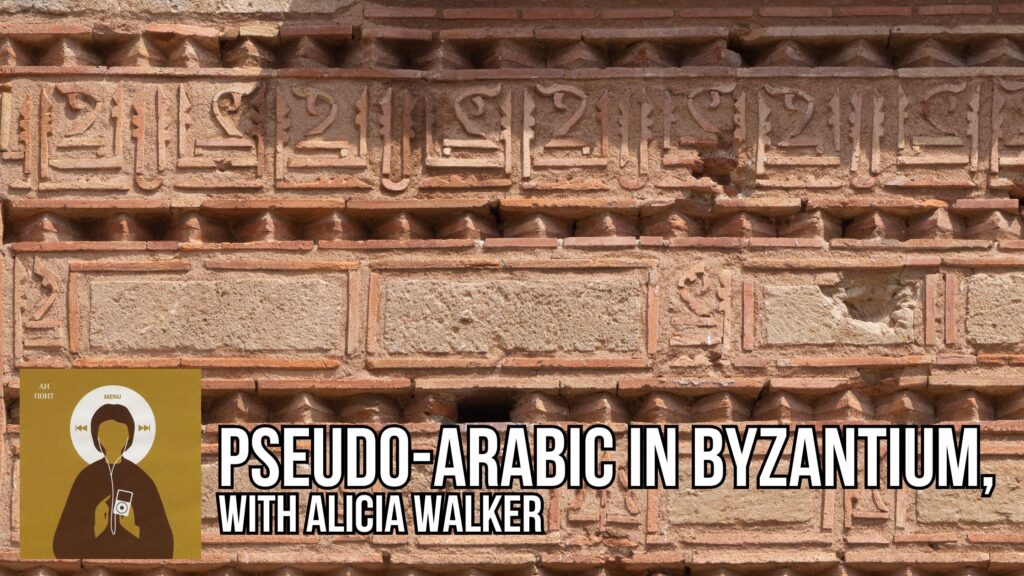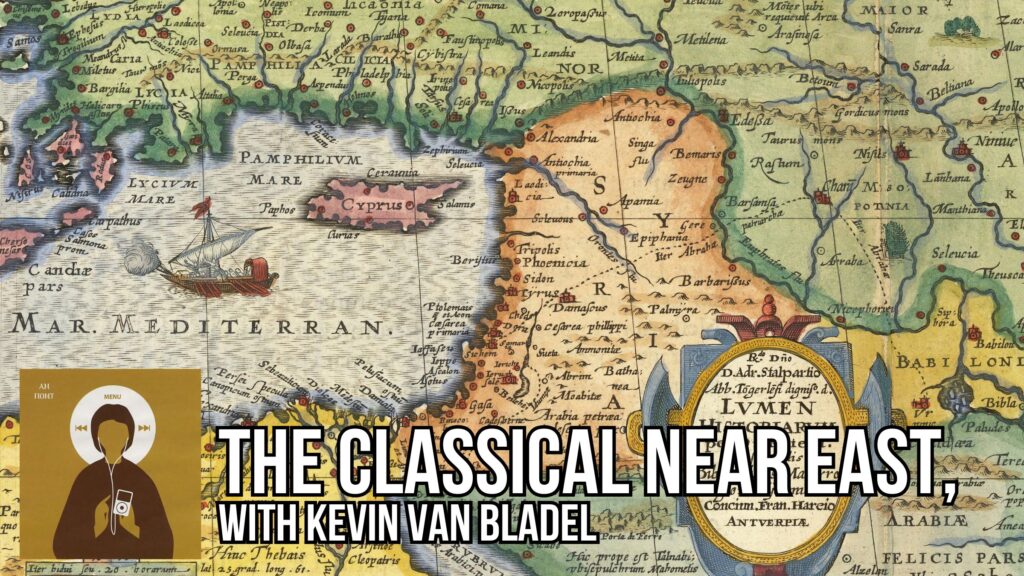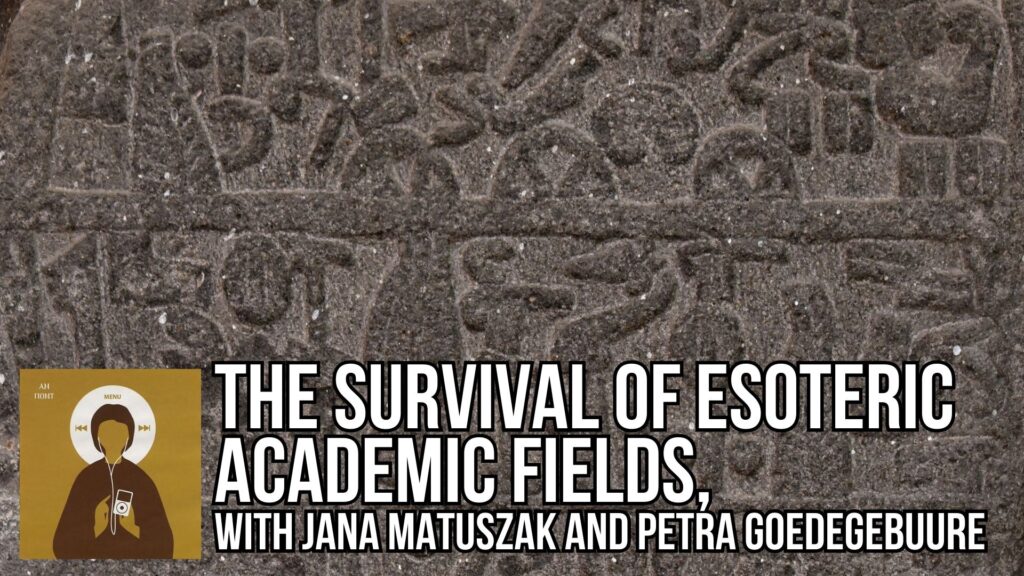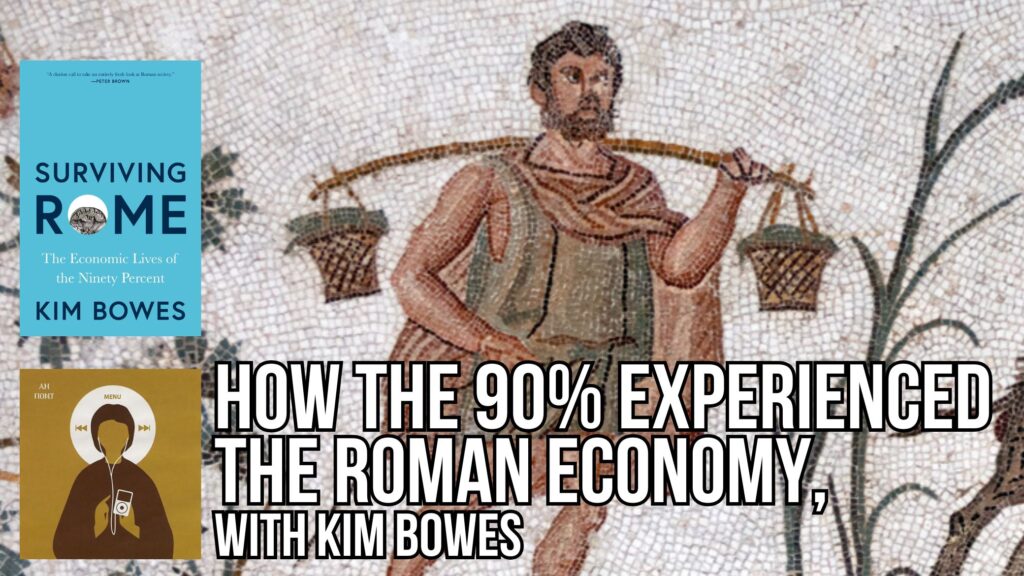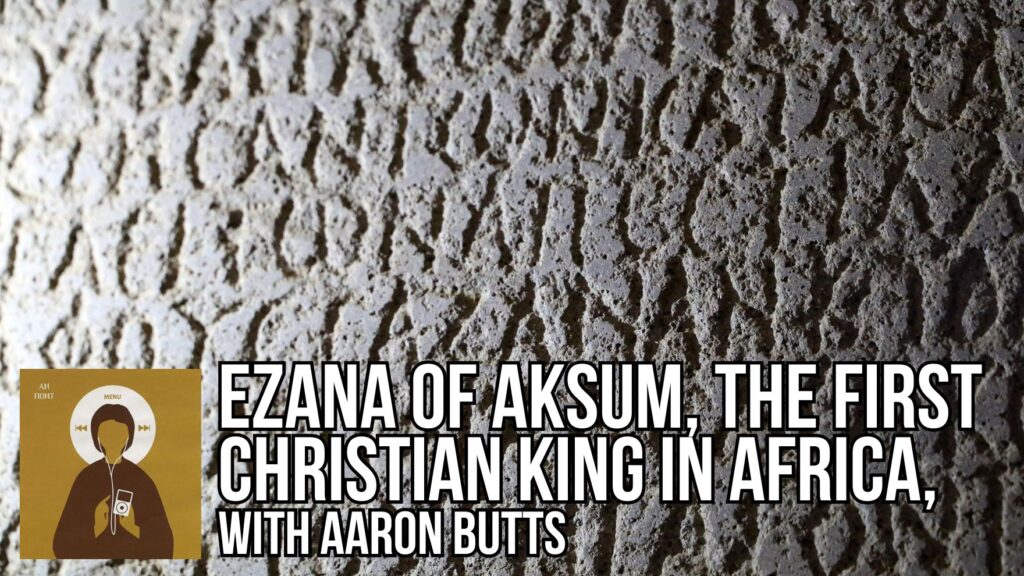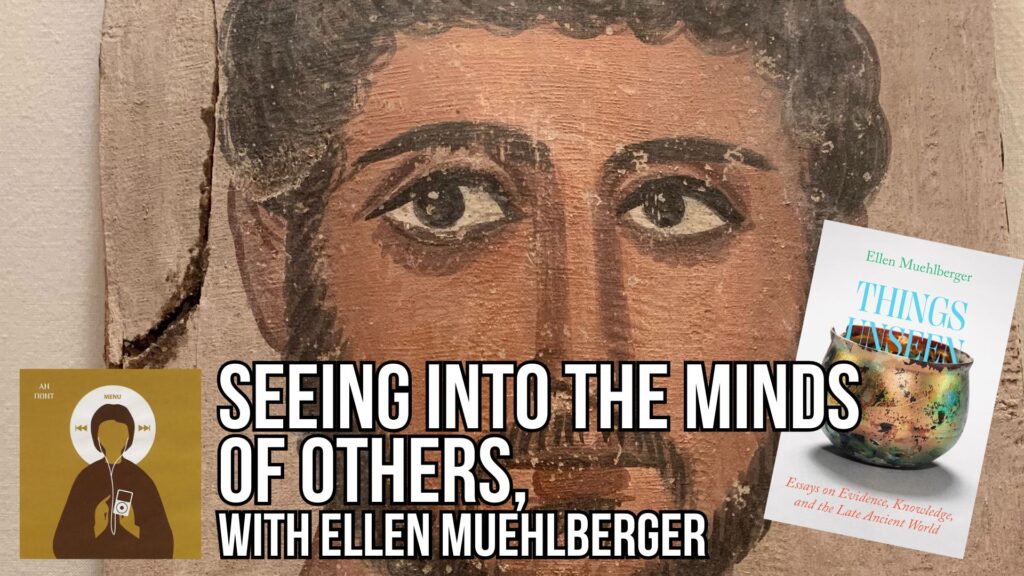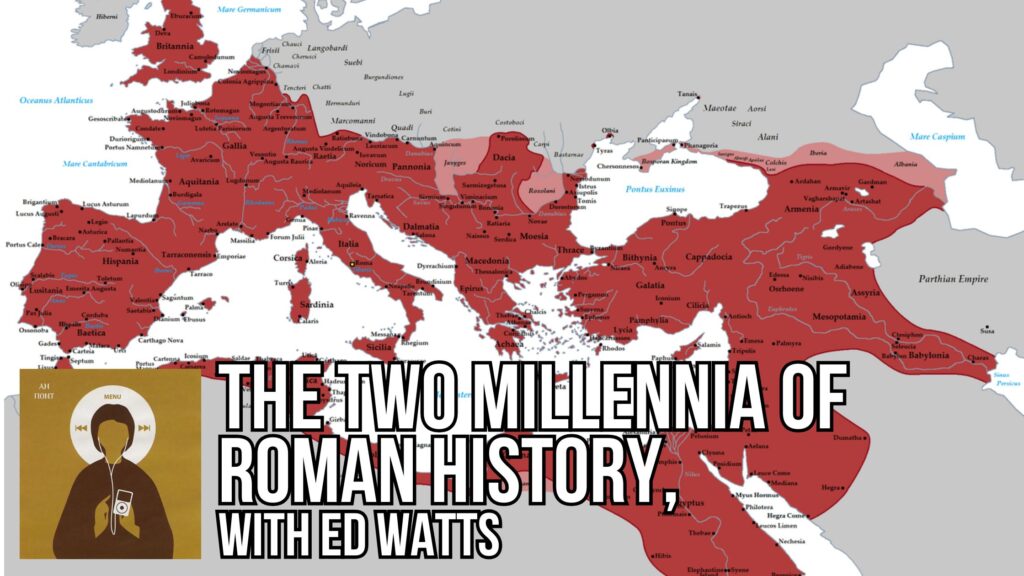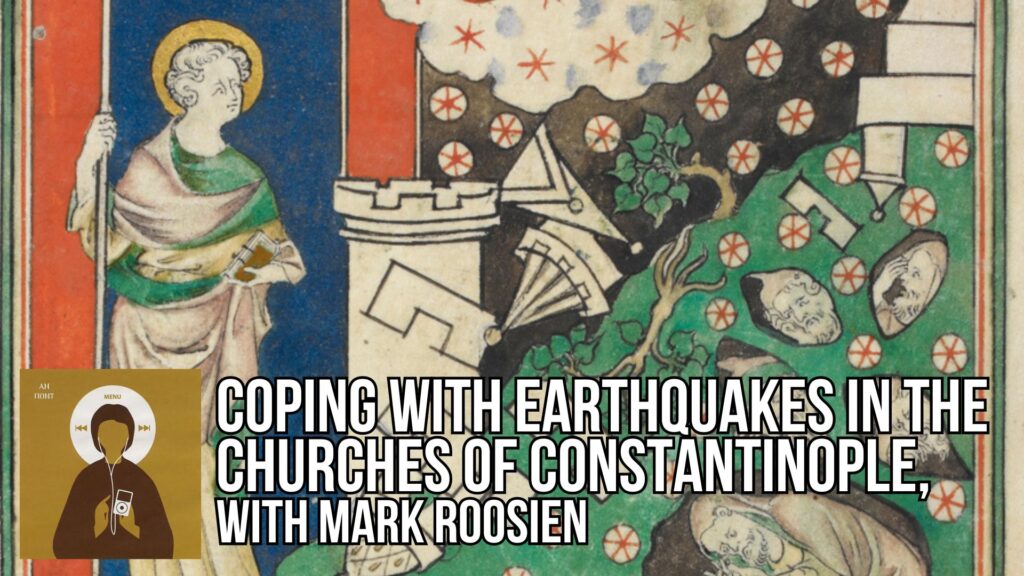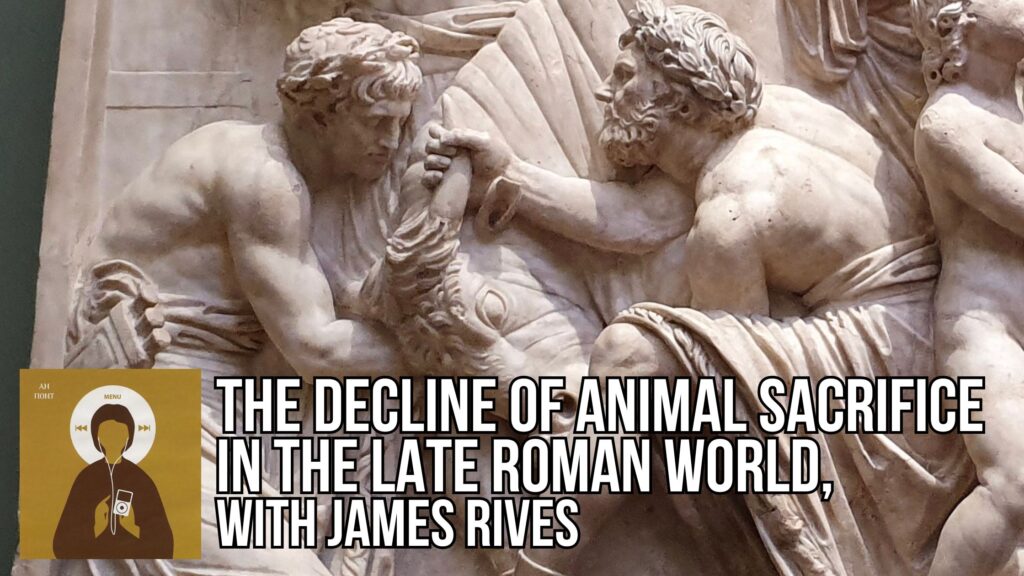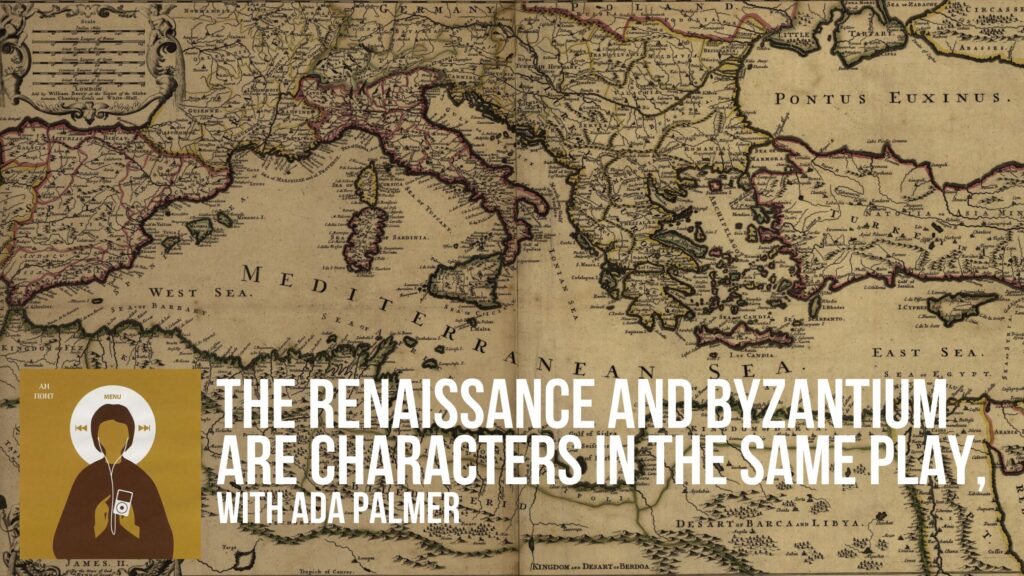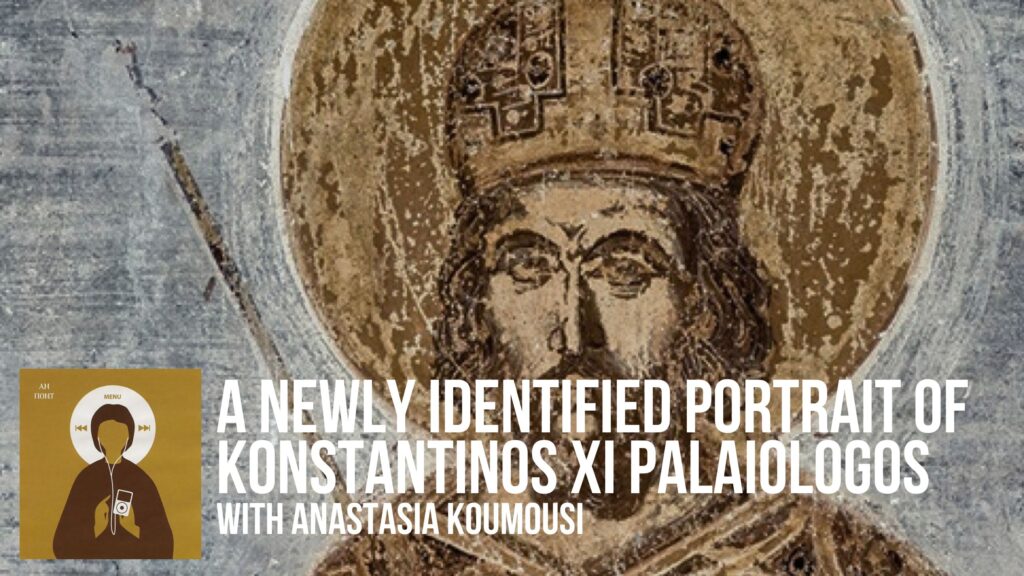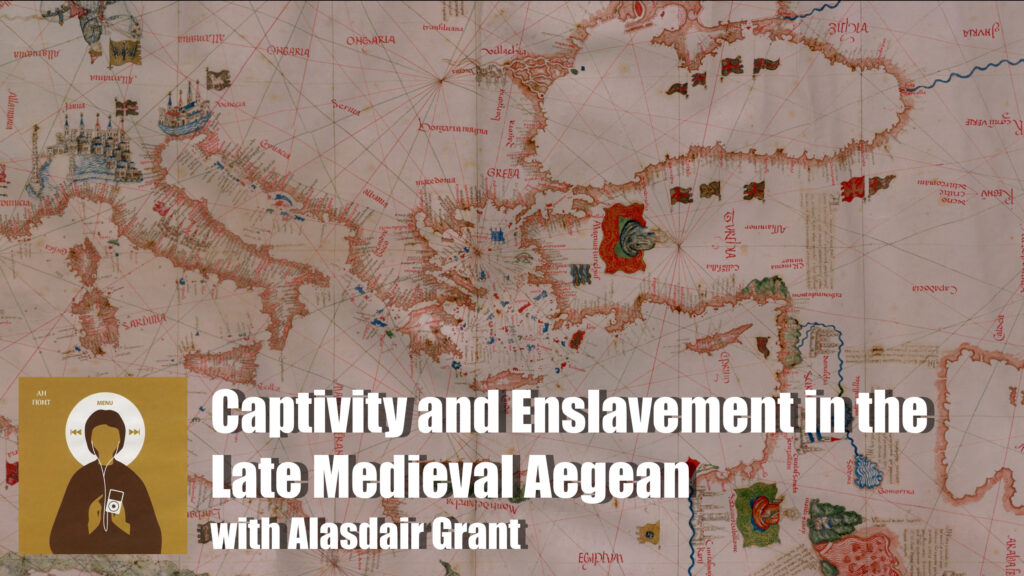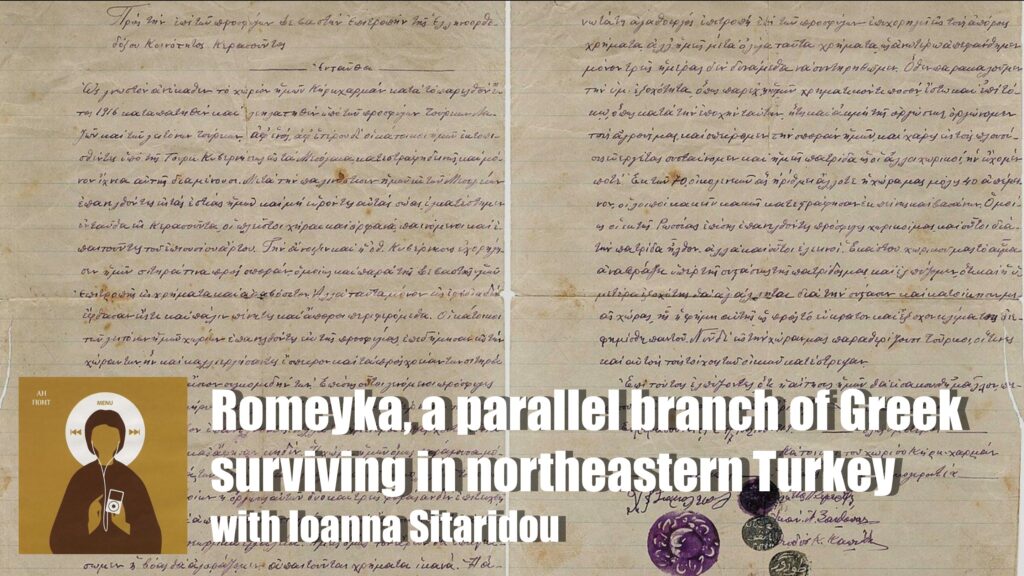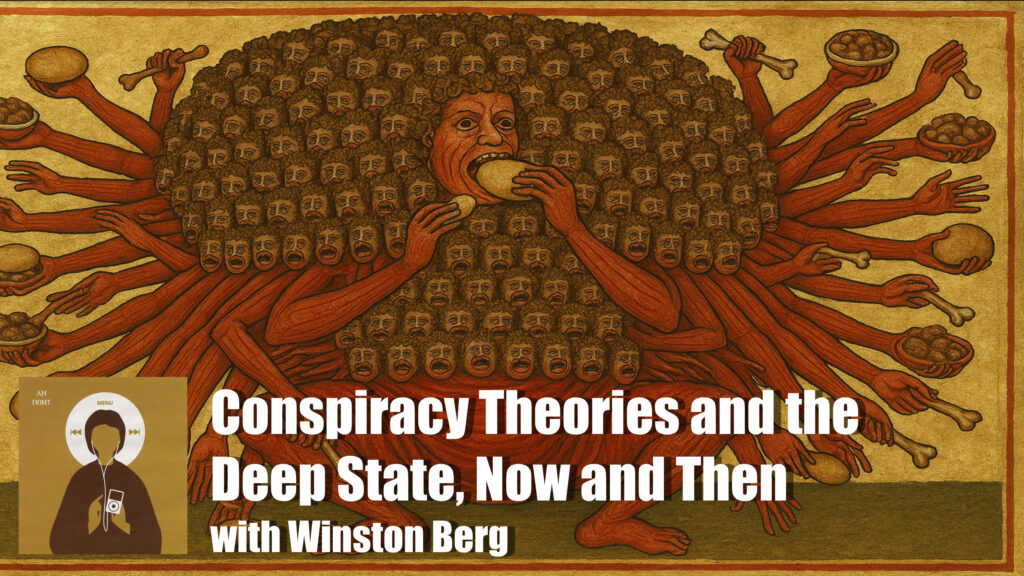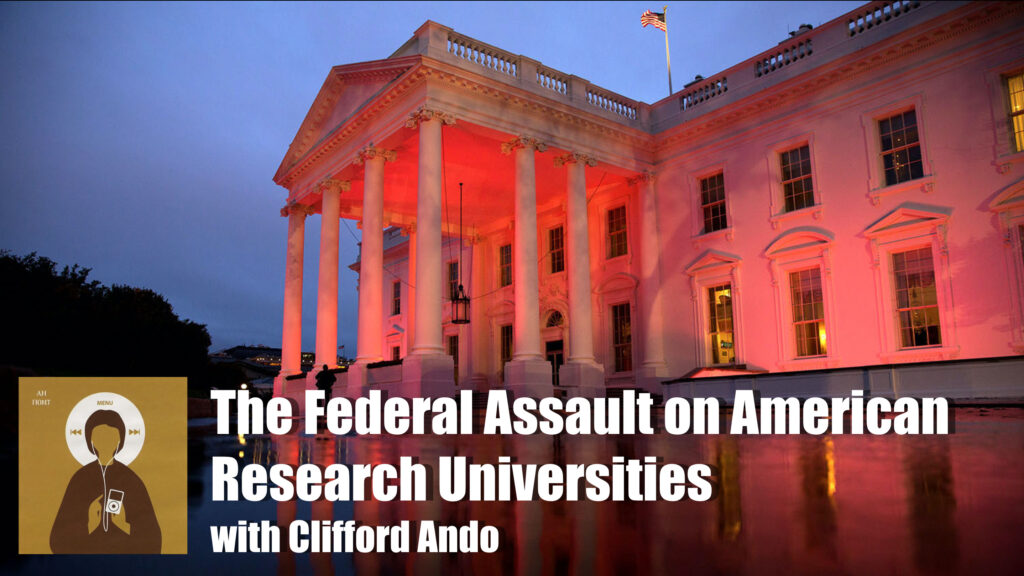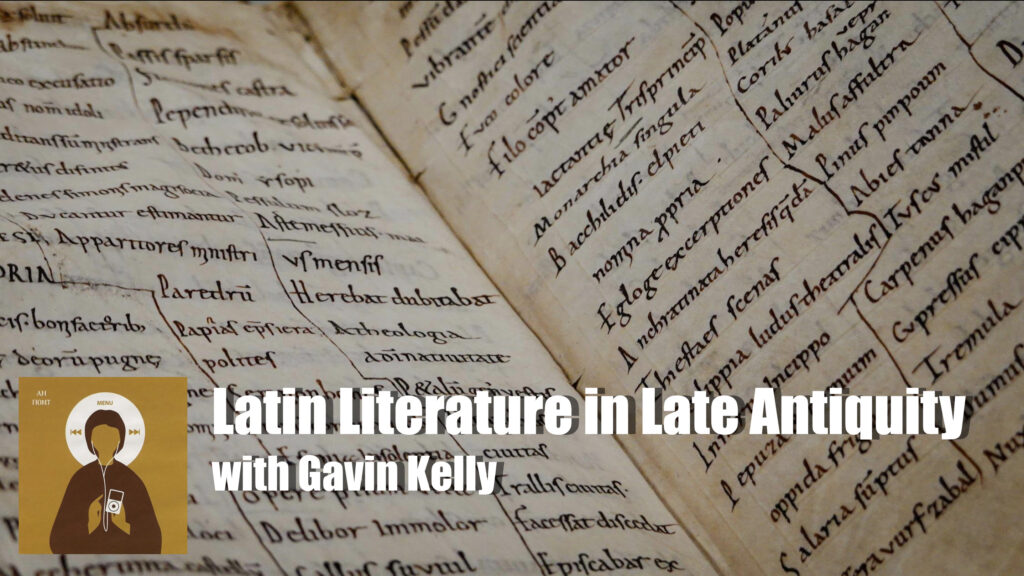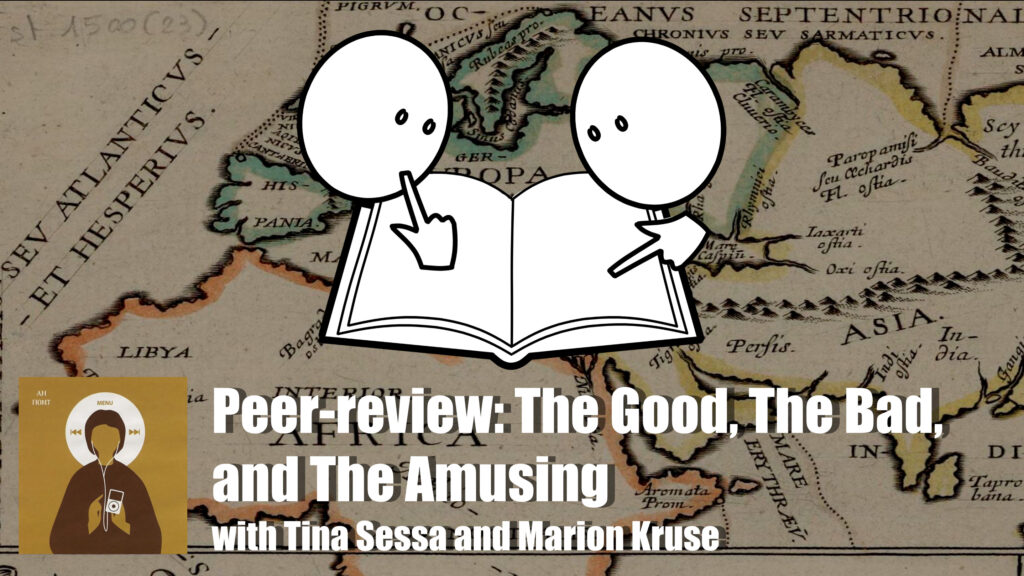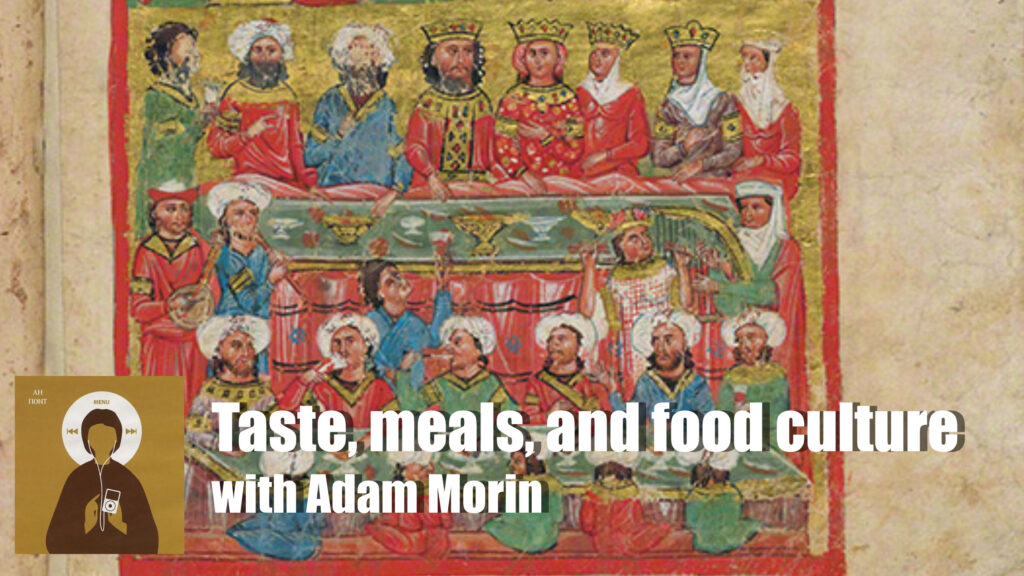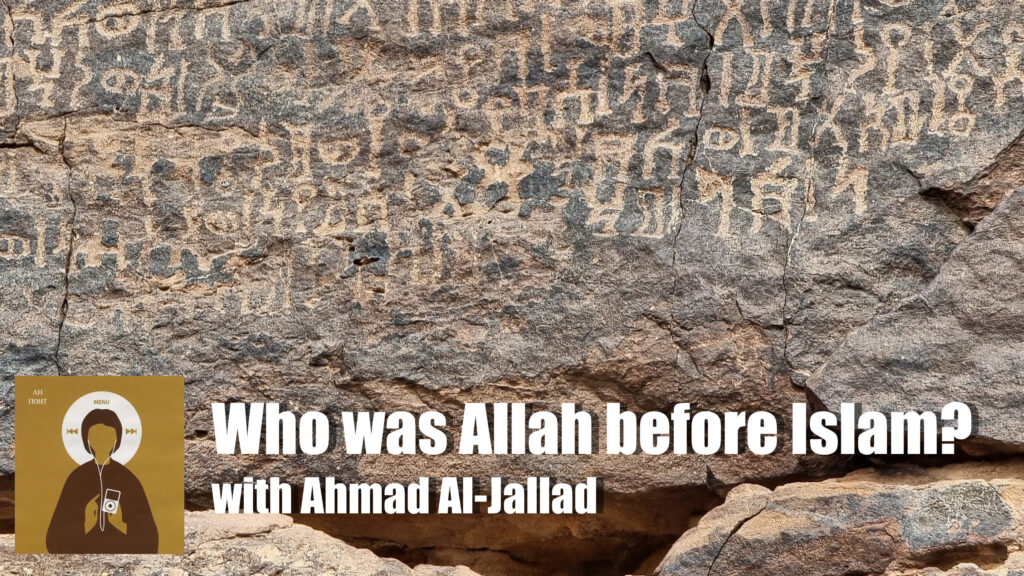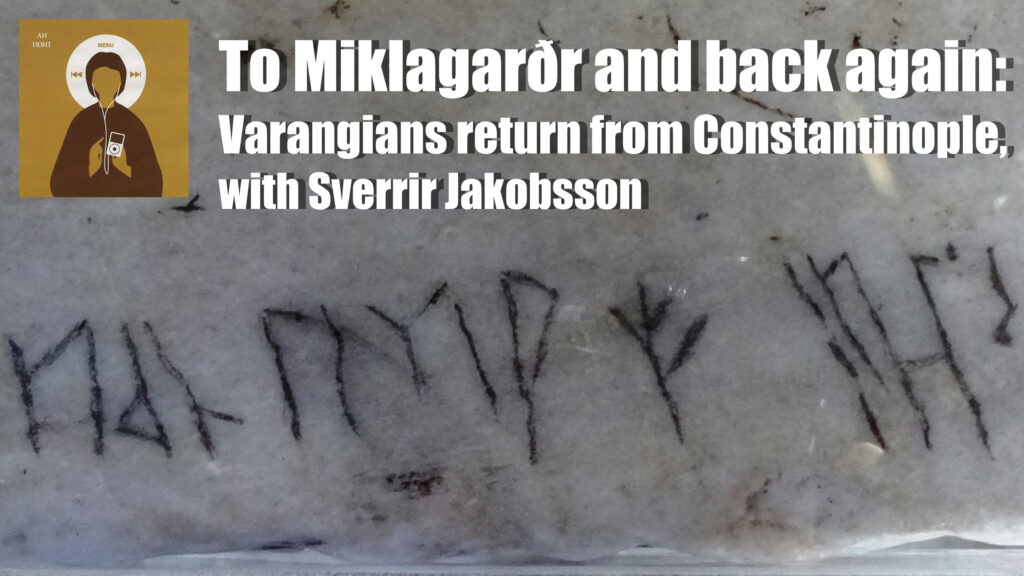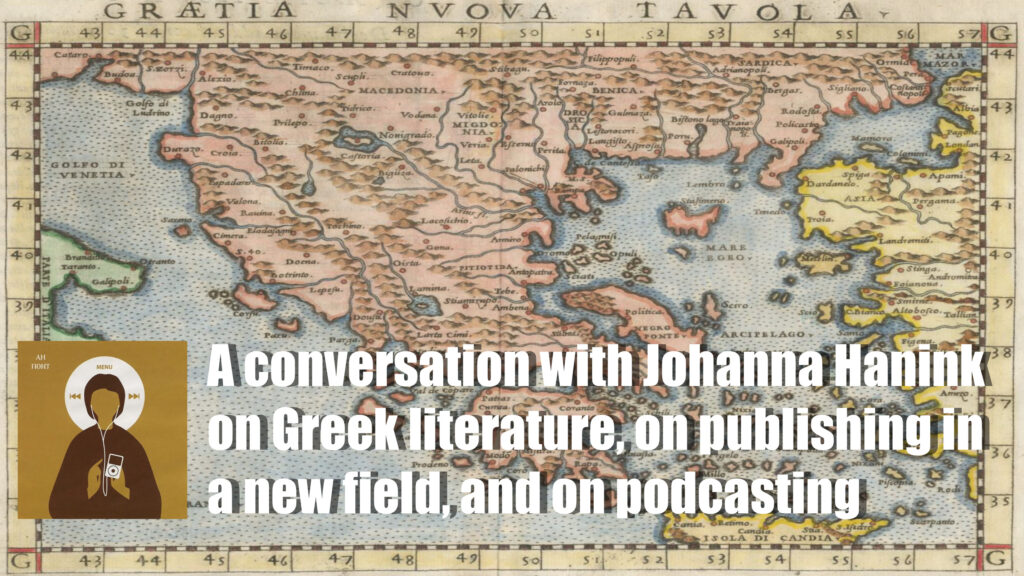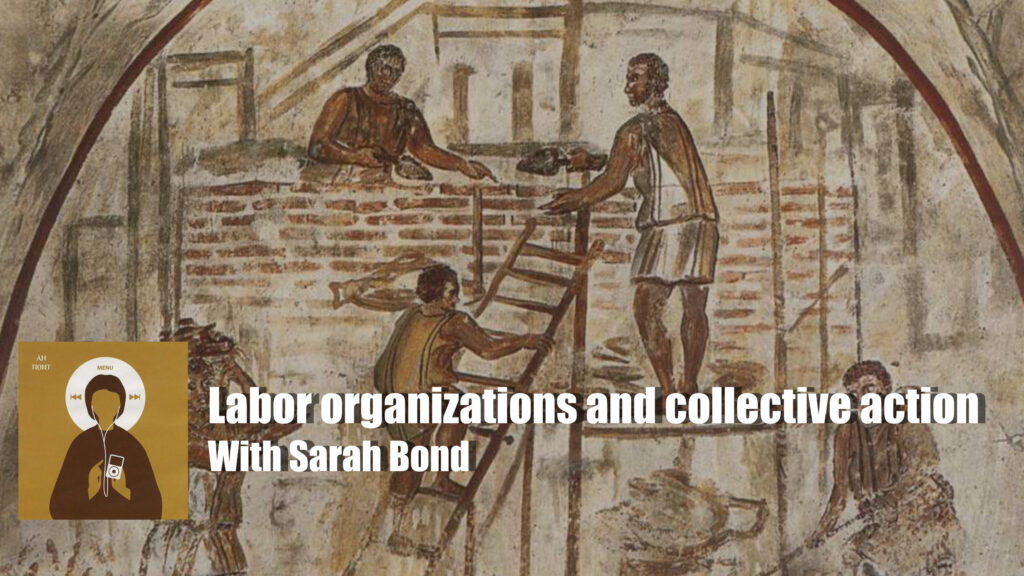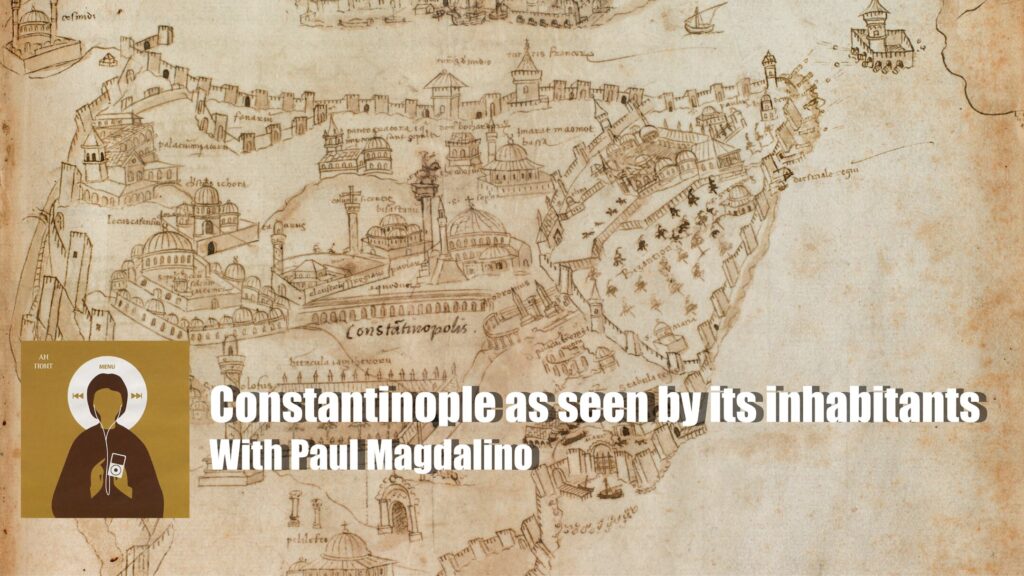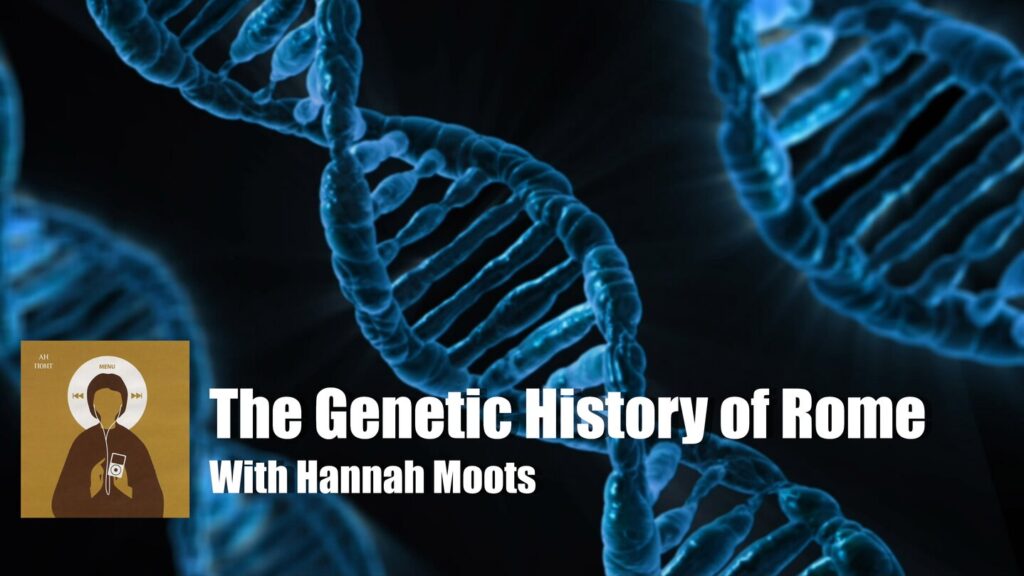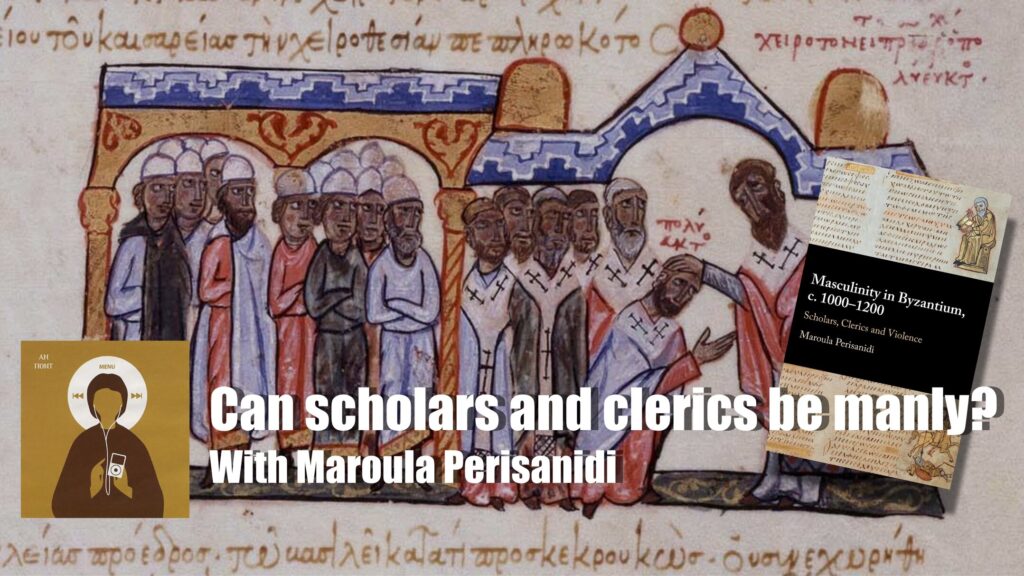Why were pseudo-Arabic inscriptions placed on churches in Greece?, with Alicia Walker
A conversation with Alicia Walker on the pseudo-Arabic inscriptions that appear on a number of tenth- and eleventh-century churches in Greece, most notably at the monastery of Hosios Loukas. What did the Arabic script signify in Orthodox culture at the time if not tension with Islam?
The Classical Near East, with Kevin van Bladel
A conversation with Kevin van Bladel on his proposal regarding “The Classical Near East,” a constellation of fields defined by the classical literary…
The Survival of Esoteric Academic Fields, with Jana Matuszak and Petra Goedegebuure
Byzantine Studies is still larger than Sumerology and Hittitology, but the numbers of our full-time faculty is shrinking. How can our fields navigate an uncertain future?
How the ninety percent experienced the Roman economy, with Kim Bowes
A conversation with Kim Bowes about her recent book, Surviving Rome: The Economic Lives of the Ninety Percent, which presents a brilliant new model of the Roman imperial economy, specifically for how the majority of the population experienced it.
Ezana of Aksum, the First Christian King in Africa, with Aaron Butts
A conversation with Aaron Butts on the conversion to Christianity of Ezana, the fourth-century king of Aksum (in modern Ethiopia and Eritrea). “Conversion” is a conventional term, but what Ezana’s inscriptions and coins reveals is a complicated process of appealing to different groups and the coexistence of religions in his realm and the royal monuments.
Seeing into the minds of others, with Ellen Muehlberger
A conversation with Ellen Muehlberger about how some people in late antiquity tried to model, confirm, or interpret what they thought was going on in the minds of others. We briefly talk about the genre of the lecture book, and then about classroom exercises in impersonation (were they exercises in empathy or not?) and breaking into houses to see what people had in their private quarters.
The Two Millennia of Roman History, with Ed Watts
A conversation with Ed Watts about his recent book, The Romans: A 2,000 Year History, which covers two millennia of Roman history, down to 1204 AD.
Coping with earthquakes in the churches of Constantinople, with Mark Roosien
A conversation with Mark Roosien about the earthquakes that struck Constantinople in late antiquity and about how emperors and the people of the City reacted to them in the moment. We focus on the church liturgies that commemorated and tried to make sense of them.
The Decline of Animal Sacrifice in the Late Roman World, with James Rives
A conversation with James Rives on the history of ancient animal sacrifice in the Roman world. We focus on its decline and eventual demise in the third and fourth centuries. Animal sacrifice was caught up in the conflicts between the Roman emperors and the Christian Church, which endowed it with an importance it had not had before.
The Renaissance and Byzantium are characters in the same play, with Ada Palmer
A conversation with Ada Palmer about the invention of the idea of the Italian Renaissance and the functions that it serves in the western historical imagination. “Byzantium” is a similarly invented category that often works in tandem with “the Renaissance” to mark good and bad moments in the history of culture.
A newly identified portrait of Konstantinos XI Palaiologos (1448-1453), with Anastasia Koumousi
A conversation with Anastasia Koumousi about the recently identified portrait of the last emperor of the Romans in Constantinople, Konstantinos XI Palaiologos, in a monastery church in the northern Peloponnese.
Captivity and Enslavement in the Late Medieval Aegean, with Alasdair Grant
A conversation with Alasdair Grant about the captivity and enslavement that many Greeks (Romaioi) experienced in the late medieval period, a period of state collapse during which they were subject to Italian and Turkish raids and attacks.
Romeyka, a parallel branch of Greek surviving in northeastern Turkey, with Ioanna Sitaridou
A conversation with Ioanna Sitaridou about a Greek language (Romeyka) still spoken in northwestern Turkey, though now endangered, whose grammar retains interesting archaic features.
Conspiracy Theories and the Deep State, Now and Then, with Winston Berg
Winston Berg is a political scientist who studies modern American conspiracy theories about politics and the deep state; his dissertation studied the movement known as QAnon. Given our political moment, I thought it would be interesting to discuss with him the different contours and valences that conspiracy theories and deep state notions took in the east Roman polity and in the United States.
The Federal Assault on American Research Universities, with Clifford Ando
A conversation with Cliff Ando about the revenue models of American research universities and the dangers to advanced research posed by the freezes recently placed on federal funding.
Latin Literature in Late Antiquity, with Gavin Kelly
A conversation with Gavin Kelly about the corpus of Latin literature from antiquity down to the present, where we discuss the reasons why most scholars focus on the period before 200 AD, why late antiquity is overlooked (despite having some first rate authors), and what can be done about that. Similar issues, we find, emerge from the study of Greek literature too.
Peer-review: The Good, The Bad, and The Amusing, with Tina Sessa and Marion Kruse
A conversation with Tina Sessa and Marion Kruse on the process of peer-review in the humanities: what it’s for, how it can be done well, and where it can go awry. The conversation is based on many decades of collective experience of peer-review, on all sides of the process.
Byzantine taste, meals, and food culture, with Adam Morin
A conversation with Adam Morin about categories of taste, the meal structure, and the food and ingredients that east Romans ate. What foods were prized and what looked down upon? How do we know what they ate? What do we know about individual preferences?
Who was Allah before Islam?, with Ahmad Al-Jallad
A conversation with Ahmad Al-Jallad about the languages and inscriptions of pre-Islamic Arabia, our main contemporary source for life, death, and worship before the time of the Prophet Muhammad. We talk about field surveys in search of inscriptions and what they tell us about Allah and other Arabian deities in the early centuries of the first millennium.
To Miklagarðr and back again: Varangians return from Constantinople, with Sverrir Jakobsson
A conversation with Sverrir Jakobsson about the experiences of Northmen — especially Varangians — who traveled to Constantinople and the south and returned home with stories, swords, riches, and prestige.
A conversation with Johanna Hanink on Greek literature, on publishing in a new field, and on podcasting
A conversation with Johanna Hanink on Greek literature (ancient, modern, and in-between), on publishing outside one’s main area of academic expertise, and on podcasting.
Labor organizations and collective action, with Sarah Bond
A conversation with Sarah Bond about organized labor groups in the Roman Empire.
Constantinople as seen by its inhabitants, with Paul Magdalino
A conversation with Paul Magdalino about the literary traditions and genres that Constantinopolitans developed to talk about the origins, history, cosmic importance, and superlative beauty of their city — the City.
The Genetic History of Rome, with Hannah Moots
A conversation with Hannah Moots about paleogenetic research, its goals, methods, and conclusions. What does it mean to study ancient DNA, and what does it tell us about human history?
Can scholars and clerics be manly?, with Maroula Perisanidi
A conversation with Maroula Perisanidi about the distinctive kind of masculinity that was fashioned by scholars and priests in the eleventh and twelfth centuries, the challenges and deficits that it faced, and the masculine capital that men in those occupations tried to amass and then spend.
